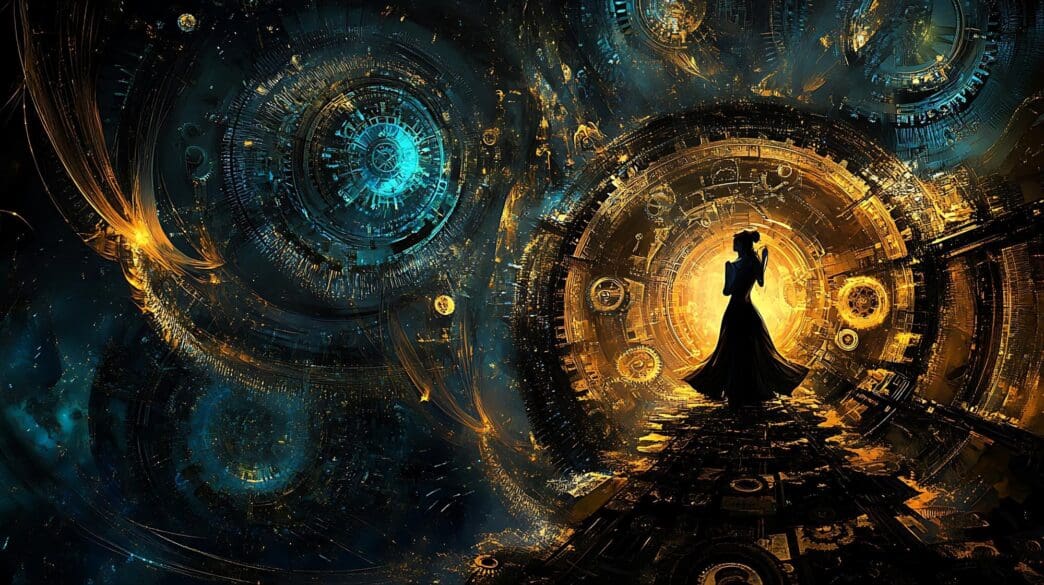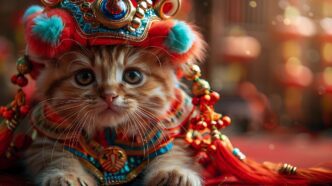Quick Takeaway
Animal & Element Origin
Impact on Personality
Diverse Interpretations
For millennia, individuals across Chinese culture have turned to the enigmatic landscape of their dreams as a profound source of insight, guidance, and foresight. These nocturnal narratives, far from being mere random occurrences, are traditionally interpreted as symbolic messages from the subconscious, the spiritual realm, or even the cosmos itself, offering vital clues about one’s health, fortune, relationships, and destiny. Understanding what your dreams reveal within this rich cultural framework provides a unique pathway to self-discovery, allowing one to navigate life’s complexities with greater awareness and make more auspicious decisions.
The Ancient Tapestry of Chinese Dream Interpretation
The practice of interpreting dreams in China boasts a lineage stretching back thousands of years, deeply interwoven with the nation’s philosophical and spiritual traditions. Ancient texts, such as the famous Zhou Gong’s Book of Dreams (周公解梦), compiled during the Zhou Dynasty, meticulously cataloged common dream symbols and their perceived meanings, shaping the interpretive framework for generations. This rich history underscores the belief that dreams are not just psychological phenomena but potent conduits for divine or cosmic communication.
Philosophical systems like Daoism and Confucianism, alongside the later influence of Buddhism, provided foundational concepts that profoundly influenced how dreams were understood. Daoism, with its emphasis on the balance of Yin and Yang and the flow of Qi (life force), viewed dreams as reflections of internal harmony or discord. Confucianism, focusing on moral conduct and societal order, might interpret dreams through the lens of one’s ethical standing or social responsibilities.
Dreams and the Cosmic Order
Central to Chinese dream interpretation is the understanding that everything in the universe is interconnected. Dreams are often seen as manifestations of the cosmic order, reflecting the interplay of the Five Elements (Wood, Fire, Earth, Metal, Water) and the principles of Yin and Yang. An imbalance in these elements within a dreamscape could signify an impending health issue or an emotional disequilibrium, prompting the dreamer to seek harmony.
The cyclical nature of the Chinese calendar, particularly the twelve animal signs of the Chinese Zodiac, also plays a crucial role. A dream featuring one’s own Zodiac animal might carry particular weight, suggesting self-reflection or a message directly related to one’s innate characteristics or life path. Similarly, encountering the animal sign of a loved one could provide insights into that relationship.
Decoding Common Dream Symbols
The lexicon of Chinese dream symbols is vast and highly nuanced, with meanings often dependent on context, the dreamer’s personal situation, and even the time of night the dream occurred. However, certain recurring motifs hold widely accepted interpretations that offer a starting point for understanding.
Animal Symbolism
Animals in Chinese dreams are rarely just animals; they are potent archetypes carrying specific cultural weight. The Dragon, for instance, is perhaps the most auspicious symbol, representing imperial power, good fortune, strength, and success. Dreaming of a dragon often foretells great achievements or the birth of a remarkable child. Conversely, the Tiger symbolizes bravery, protection, and authority, but can also represent aggression or challenges if it appears threatening.
The Snake, while sometimes associated with deceit or danger in Western cultures, often represents healing, transformation, or hidden wisdom in Chinese dreams, especially if it is not aggressive. Fish, particularly carp, are strong symbols of abundance, wealth, and prosperity, due to the word for fish (鱼, yú) being a homophone for surplus (余, yú). Dreaming of birds often signifies freedom, messages, or spiritual elevation, with different species carrying unique nuances.
Natural Elements and Landscapes
Elements of nature within dreams are equally significant. Water, in its various forms, is a powerful symbol of emotions, wealth, and the flow of life. Clear, calm water suggests peace and prosperity, while turbulent or muddy water can indicate emotional turmoil or financial instability. Mountains typically represent challenges, stability, or obstacles to overcome, with climbing a mountain symbolizing ambition and perseverance.
Trees often symbolize growth, vitality, and family lineage, with a flourishing tree indicating good health and family prosperity. Flowers represent beauty, fleetingness, love, or new beginnings, with specific flowers like the peony (wealth, honor) or lotus (purity, enlightenment) holding deeper meanings.
Objects and Actions
Dreaming of certain objects can also be highly revealing. Gold and silver explicitly denote wealth and good fortune. Jade, a highly revered stone, symbolizes purity, protection, and longevity. Weapons like swords can signify conflict, justice, or the power to overcome adversity. Actions such as flying often represent freedom, ambition, or transcending limitations, while falling can indicate a loss of control, anxiety, or a need to re-evaluate one’s path.
Dreams of death, contrary to common fear, are rarely interpreted as literal predictions of an end. Instead, they often symbolize transformation, rebirth, or the conclusion of a significant life phase, paving the way for new beginnings. Giving birth, on the other hand, frequently signifies new projects, ideas, or the arrival of good news.
Dreams as Omens and Health Indicators
Beyond symbolic interpretation, dreams in Chinese culture are often regarded as potent omens, signaling future events or providing early warnings about one’s physical health. Auspicious dreams, such as seeing a phoenix, a bright pearl, or receiving a gift from a deity, are believed to foretell great fortune, success, or the birth of noble offspring. These dreams are often cherished and shared as indicators of impending good luck.
Conversely, certain dreams are considered inauspicious warnings. Losing teeth, for example, might suggest illness or the loss of a loved one. Being chased by a black dog could signify impending misfortune or a hidden enemy. Interpreters emphasize that such dreams are not necessarily deterministic but serve as calls to action, prompting the dreamer to exercise caution, seek remedies, or adjust their behavior to avert potential negative outcomes.
Furthermore, Traditional Chinese Medicine (TCM) often integrates dream analysis into diagnosis. Dreams reflecting specific emotional states or symbolic organ imbalances can point to underlying health issues. For instance, frequent dreams of anger or fire might suggest an imbalance in the Liver meridian, while dreams of fear or water could relate to the Kidney meridian, guiding practitioners in their treatment.
Embracing Your Dream Journey
For those looking to unlock the secrets of their own dreams, the journey begins with mindfulness and consistent practice. Keeping a dream journal is an invaluable tool, allowing one to record details immediately upon waking, capturing symbols, emotions, and narratives before they fade. Over time, recurring patterns and personal symbols will emerge, offering deeper insights unique to the individual.
Approaching dream interpretation with an open mind and a spirit of self-reflection is key. While traditional Chinese interpretations provide a rich framework, the ultimate meaning often resonates most profoundly when connected to one’s personal experiences, aspirations, and current life circumstances. Dreams are not just predictions; they are a dialogue between your inner self and the larger universe, offering guidance for personal growth and holistic well-being.
The ancient Chinese tradition of dream interpretation remains a vibrant and relevant practice, offering a profound lens through which to understand ourselves and our place in the cosmic dance. By paying attention to these nocturnal narratives, we gain access to a treasure trove of wisdom that can illuminate our path, empower our decisions, and deepen our connection to the rich tapestry of Chinese culture and our own inner lives.








